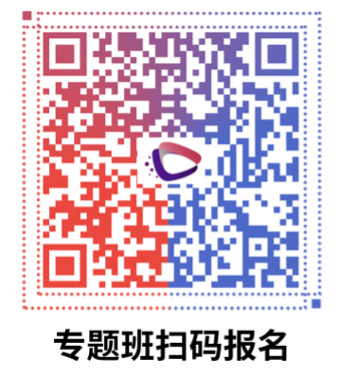時間:2022年7月2日– 7月31日
主辦:意昂3
上海紐約大學應用社會經濟研究中心
協辦:意昂3官网數據科學與都市研究中心
意昂3官网上海社會科學調查中心
為推動中國社會學定量研究方法的教學🪜,加快培養應用社會科學研究的人才,促進教學和研究資源的地區均衡分布,意昂3與香港科技大學應用社會經濟研究中心自2012年夏季開始,聯合舉辦《應用社會科學研究方法研修班》,至今已經成功舉辦10屆18期“暑期班”與“冬季班”,參訓學員超5400人次,來自全國各個省份以及歐美的350多所高校與科研機構。
2022年暑期,意昂3與上海紐約大學應用社會經濟研究中心將在上海舉辦《第11屆·應用社會科學研究方法研修班·暑期班》,邀請上海紐約大學助理教授繆佳博士、浙江大學“百人計劃”研究員李昂然博士、美國紐約州立大學石溪分校助理教授張勇軍博士、美國紐約市立大學皇後意昂3副教授徐宏偉博士,美國波爾州立大學教授(Ball State)徐峻博士等學有專長的學者講授中英文量化研究方法課程👏🏼,更加突出“研修班”的跨學科、國際化、多層次和實用性的特色💄💂🏼。
(1)2022年暑期班繼續秉持“基礎模塊”+“專題模塊”的課程模式🐳,內容化整為零,前後銜接一體,學員可根據自己的實際情況自由選擇不同模塊🤚🏽🧑🏻🦽。
(2)2022年暑期班繼續秉持方法教學與實際應用相結合的宗旨,教學與答疑相結合🕯。
(3)2022年暑期班繼續註重培養學員對社會科學研究方法的深入理解,對統計技術和數據處理的操作和結合社會科學研究的應用能力。
考慮到新冠疫情的持續影響,本次暑期班采用全程線上直播的方式授課。其中,“基礎模塊”為中文授課👷🏻♀️,由意昂3官网數據科學與都市研究中心負責實施👟;“專題模塊”為英文授課,由上海紐約大學應用社會經濟研究中心負責實施。在研修班期間,主辦方將同步舉辦社會科學研究方法系列講座👩🏽🚒,對研修班學員免費開放💂🏼♂️。
我們熱誠歡迎國內外各地區高等院校🧑🦼➡️、科研院所的青年教師🏋🏼♂️、研究生和高年級本科生報名參加🌱!
一、課程安排
模塊名稱 |
模塊內容 |
時間 |
學費 |
基礎模塊 |
《STATA與應用回歸分析基礎》 Applied Regression Analysis |
7/2-7/8 |
1000元 |
《類別數據分析》 Categorical Data Analysis |
7/11-7/15 |
專題模塊[2.1] |
《計算社會科學導論》 Introduction to Computational Social Science |
7/15-7/19 |
1000元 |
專題模塊[2.2] |
《社會科學空間數據分析》 Spatial Data Analysis in Social Sciences |
7/21-7/25 |
1000元 |
專題模塊[2.3] |
《應用貝葉斯回歸分析導論》 Introduction to Applied Bayesian Regression Analysis |
7/27-7/31 |
1000元 |
(一)基礎模塊
時間:2022年7月2-15號
地點:騰訊會議直播(無回放)
模塊教學內容:
《STATA與應用回歸分析基礎》[課程編號501](上海紐約大學繆佳)
《類別數據分析》[課程編號503](浙江大學李昂然)
招生人數:
300人
基礎模塊以高年級本科生與研究生為主,兼顧青年教師;
修過相關統計課程及熟悉STATA操作者優先💪🏿。
基礎模塊學費(線上)🏊🏿♀️:1000元/人
[1.1]《STATA與應用回歸分析基礎》[課程編號501]
主講教師:繆佳助理教授
時間💆🏽♀️👩🏼🍳:2022年7月2日-7月8日
課時🛀🏼👮🏽:42學時,上午3小時課程👨🏻🎤,下午3小時上機答疑💛,共7天。
語言🧔:中文授課
課程介紹:
本課程側重於從應用與操作的角度介紹多元線性回歸分析技術,內容涵蓋函數與變量形式🕢、統計檢驗與回歸診斷等🖨。課程首先將介紹簡單線性回歸的主要假設🚴🏻♂️、估計方法與特性👩🏽🎨,進而推及多元回歸模型並解釋後者的優勢與必要性。本課程只考慮因變量為連續或兩分變量的情形。課程將重點討論各種形式的自變量𓀖🌟,如虛擬變量、連續變量的對數形式、二次項以及自變量之間的相互作用👱🏽♂️,並闡述如何解釋相關的回歸系數🦁。接下來,課程將介紹系數與系數線性組合的顯著性檢驗以及對模型擬合優度的測量。課程的最後將介紹針對奇異值、多重共線性與異方差性等問題的回歸診斷技術。在對以上所有主題的討論中,本課程將著重於其在實際分析中的意義及如何運用STATA統計軟件加以實現,僅在必要時給予數學證明或統計理論上的解釋。
教師簡介:
繆佳👉🏻,香港科技大學社會科學哲學博士,現任上海紐約大學文理學部社會學助理教授(常任軌),紐約大學社會學系聯屬助理教授(Affiliated Assistant Professor),曾為香港科技大學社會科學部研究助理教授,北卡羅萊納大學教堂山分校社會學系訪問學者🐘。研究方向為城市社會學、社區研究、人口健康與老齡化,研究成果發表於Social Forces, Cities, Chinese Sociological Review, Social Science & Medicine, Aging & Society, Health & Place等期刊。主要講授Methods for Social Research, Urban Sociology, Population and Society, Quantitative Analysis and Empirical Methods等課程🦹🏼♂️👨❤️👨。2021年入選上海市“青年東方學者”🧍🏻,2022年入選上海市“領軍人才(海外)項目青年人才”。
[1.2]《類別數據分析》[課程編號503]
主講教師👩🏽🍳:李昂然研究員
課程時間:2022年7月11-15日
課時:30學時,上午3小時課程,下午3小時上機答疑👩🏻🦼➡️,共5天。
語言:中文授課👩🎨。
課程介紹:
類別變量回歸模型作為線性回歸模型的延伸,包括對二分變量(dichotomous variable),定序變量(ordinal variable) ,多項變量(multinomial variable)以及頻次(count)的回歸分析。在對基本概念和模型估計簡介之後,本課程主要集中在模型構建與解釋,以及如何應對在社會科學運用中常見的問題。作為線性回歸的延伸,本課程要求學員對線性回歸的基本假設、解釋🌧、以及模型構建有基本了解🎛,同時對基本數學符號及運算法則(比如對數運算)有所了解👷🏻。本課程將使用STATA作為模型估計工具♠️。
教師簡介:
李昂然,美國康涅狄格大學社會學博士,現任浙江大學社會學系“百人計劃”研究員。其研究興趣主要包括家庭學校教育與代際流動的關系以及高等教育公平問題。主要講授教育社會學🦸🏽♀️、分類數據分析等課程。其研究發表於Social Forces, Social Science Research♌️,Sociology of Education, Chinese Sociological Review, Chinese Journal of Sociology等學術期刊🦌👤。
(二)專題模塊
[2.1] Introduction to Computational Social Science[課程編號522A]
主講教師:Yongjun Zhang (張勇軍)教授
語言⛹️:英文
時間🙇🏻🧺:2022年7月15日-7月19日
地點:線上直播(無回放)
課時:每天上午3.5小時課程,共5講🚣🏿♀️。
學費:1000元(提供學費減免獎學金👰🏻,名額有限)
招生人數:25人
The rapid development in information and communications technology has revolutionized how social scientists think about human and social behavior and conduct social research. Especially during the COVID-19 pandemic, big tech firms have provided scholars with various large-scale structured and unstructured datasets. Thus, scholars need to build new toolkits to process text, image, audio, video, and geospatial data innovatively and efficiently in order to advance social theories and address social science problems. This course aims to 1) offer a survey of methods and techniques commonly used in computational social science and 2) introduce a pipeline of doing computational social science in different settings such as cloud computing.Topics in thecourse consist of research ethics in the big data era, basics in machine learning (including deep learning), basics in cloud computing, natural language processing, basics in computer vision, APIs and web-scraping, and data visualization. The programming language used in the course includes R and Python (Students with limited programming language are also encouraged to apply, and we will provide lab training.).
Prerequisites:
•Basic programming skills in R or Python.
• Intro statistics and linear regression models.
About the Instructor:Yongjun Zhang is an Assistant Professor of Sociology and Institute for Advanced Computational Science at the State University of New York (Stony Brook). He is also a research affiliate at New York University. Dr. Zhang is a computational sociologist who combines computational, network, and statistical methods with large-scale datasets to study organizational, social, and political behavior, particularly focusing on segregation and polarization in different settings. Currently, he is using relational data from SafeGraph and Facebook as well as 190 million L2 voter records and 260 million Infutor consumer records to assess the antecedents and consequences of racial/partisan/income segregation in the United States. He is also using deep learning methods to detect and monitor anti-AAPI hate speech on Twitter since the COVID-19 outbreak. His research has been funded by OVPR and IACS seed grants at Stony Brook University. His work has appeared in leading social science journals such as theAmerican Journal of Sociology, Demography, Journal of Marriage and Family, and Plos One, among others. He has won the 2020 James Coleman Award from the Sociology of Education Section at American Sociological Association and the 2021 SIM Best Paper Submission at the Academy of Management.
[2.2] Spatial Data Analysis in Social Sciences[課程編號512]
主講教師:Hongwei Xu (徐宏偉)教授
語言:英文
時間:2022年7月21日-7月25日
地點:線上直播(無回放)
課時:每天上午3.5小時課程,共5講。
學費🧑🏼🦰:1000元(提供學費減免獎學金,名額有限)
招生人數🎠:25人
Course Description
This course introduces spatial data analysis applied in multiple social science disciplines including sociology, demography, epidemiology, public health, political science, and biostatistics. The course consists of two modules: (1) exploratory spatial data analysis (ESDA); and (2) spatial modeling. Students will learn how to carry out ESDA and spatial modeling in different software packages including R, GeoDa, QGIS, and Stata.
In the ESDA module, we will introduce the three types of spatial data (areal data, point-referenced or geostatistical data, and mapped point process or point pattern data). We will learn basic process spatial data processing in preparation for analysis, Monte Carlo simulation and Bayesian spatial statistics, cluster analysis of mapped point process, and the concept of spatial autocorrelation.
In the spatial modeling module, we will survey various statistical models that suit different types of spatial data. Some examples are: (1) space-time models for mapped point process; (2) the conditional autoregressive model (CAR) and the simultaneous autoregressive model (SAR) for areal data; (3) Bayesian hierarchical models for point-referenced or geostatistical data; and (4) multilevel and Bayesian spatial models for small area estimation.
Throughout the course, we will focus on the intuition behind spatial statistics, the use of computer software, and coding. We will run computer simulations and replicate case studies in real social science research. Some of the case studies will be drawn from my own research.
About the Instructor🥧🚣🏼♂️:Hongwei Xu is an associate professor of sociology at the City University of New York (CUNY) – Queens College. He received his BA in sociology from Peking University in 2003 and PhD in sociology from Brown University in 2011. Before joining CUNY, he was a post-doc research fellow at the Institute for Social Research, University of Michigan during 2012-2014, and a research assistant professor at the same institute during 2015-2018. His research interests include population aging and health, spatial demography, and quantitative methods. His work has been published in American Journal of Sociology, Demography, European Sociological Review, Health & Place, International Journal of Epidemiology, Journal of Epidemiology & Community Health, Population Studies, Sociological Methodology, Social Science & Medicine.
[2.3] Introduction to Applied Bayesian Regression Analysis [課程編號509]
主講教師🈴:Jun Xu(徐峻)教授
語言:英文
時間:2022年7月27日-7月31日
地點🦸♂️:線上直播(無回放)
課時:每天上午3.5小時課程,共5講。
學費👩🏿🎤:1000元(提供學費減免獎學金,名額有限)
招生人數🧐:25人
Course Description
With the exponential growth in computing power, Bayesian statistics has metamorphosed from an obscure alternative to a serious challenger of the traditional frequentist statistics. This workshop introduces the conceptual background, computational procedures, and statistical techniques for doing Bayesian regression analysis, with a focus on application and interpretation. Selected topics covered include the historical background of the Bayesian framework in comparison with the classical frequentist approach, the Bayes’s theorem, the basics of likelihood theory, the Markov chain Monte Carlo (MCMC) methods, Bayesian GLM and advanced models, and post-estimation analyses. The first component of each lecture covers important concepts and techniques, and the second component teaches the workflow of doing Bayesian data analysis using R and Stan.
About the Instructor:Dr. Jun Xu is professor of sociology and data science at Ball State University. His quantitative research/teaching interests include Bayesian statistics, categorical data analysis, causal inference, machine learning, and statistical programming. His methodological works have appeared in journals such asSociological Methods and Research, Social Science Research, and The Stata Journal. He is an author of Ordered Regression Models: Parallel, Partial, and Non-Parallel Alternatives(with Dr. Andrew S. Fullerton by Chapman & Hall), and he is the author of another statistical monograph on modern regression analysis forthcoming with the same publisher. In the past two decades or so, he has authored or co-authored several statistical application packages, including gencrm, grcompare, and the popular SPost9.0 package in Stata and stdcoef in R.
二、申請程序
1.申請原則:
(1) 2022年暑期班“基礎模塊”由2門課程組成,采取“模塊報名”的申請方式,2門基礎課程不能分別單獨申請👨🏼🌾。
(2) “專題模塊”由3門課程組成,采取“課程報名”的申請方式🙏🏽🏌️♀️,3門專題課程可以分別單獨申請,最多不能超過兩門🏌🏼♀️。
(3)原則上不鼓勵學員同時申請“基礎模塊課程”與“專題模塊課程”。
2.申請日期:2022年4月26日 - 5月30日。
3.申請方式:
Ø在線提交報名申請(掃描對應的二維碼提交申請)。
Ø註意:由於基礎模塊和專題模塊所需要的申請材料有差異,請分開申請🧕🏿📻。

基礎班報名

專題班報名
Ø2022年6月10日前審核報名材料並盡快通知錄取結果,錄取結果將於6月10號在意昂3(/)、意昂3官网數據科學與都市研究中心網站(https://suns.shu.edu.cn/)以及魔都有調研微信公眾號公布。錄取通知及繳費方式將陸續發送至報名郵箱🚿。若在6月20日之前未收到錄取結果,可來電或者發郵件至shuworkshop2022@126.com咨詢。
4.學員收到錄取通知(電子郵件)後,發送《回執》或繳費證明給主辦方;主辦方將通過電郵發送相關材料和指引🧱。
5.咨詢方式:
電話
021-66136195(意昂3官网陳老師)(基礎班)
021-20595669(上海紐約大學劉老師)(專題班)
咨詢郵箱💜:
shuworkshop2022@126.com(基礎班)
shanghai.caser@nyu.edu(專題班)
官方網站:
意昂3
意昂3官网數據科學與都市研究中心
上海紐約大學應用社會經濟研究中心
6.確保所提供的聯系方式(電話和電子郵箱)能及時聯系到申請者本人🧕🎑。如所提供的電話和電子郵箱有變👏🏻,請及時告知,以免由此導致相關信息資料不能正常送達🌱。
三👮🏻♀️、課程考核
1.凡參加暑期課程的學員,完成必須的作業🪸🕵🏻♀️。
2.完成課程培訓,頒發《結業證書》。
四、“應用社會科學方法”研修班課程規劃大綱
基礎模塊課程
500.《統計軟件應用:STATA》[基礎課程]
501.《應用回歸分析基礎》[基礎課程]
502.《高級應用回歸分析》[基礎課程]
503.《類別數據分析》[基礎課程]
專題模塊課程
504.《調查數據分析》
505.《對數線形模型》
506.《事件史分析》
507.《多層次線形模型》
508.《固定效應模型》
509.《因果分析模型》
510.《結構方程模型》
511.《研究設計》
512.《GIS應用與空間分析》
513.《潛類分析》
514.《網絡分析》
515.《抽樣調查》
516.《增長模型》
517.《因素分析》
518.《路徑分析》
519.《民意調查》
520.《計算機在調查中的應用》
521.《統計軟件應用🚐:SAS》
521.《統計軟件應用🧓🏻:R》
522.《數據挖掘》
522A.《計算社會科學入門》
522B.《定量文本分析》
522C.《應用貝葉斯回歸分析導論》
高級研討課程
523.《數據分析專題》
524.《社會科學研究專題》
525.《社會科學定量研究論文》工作坊


